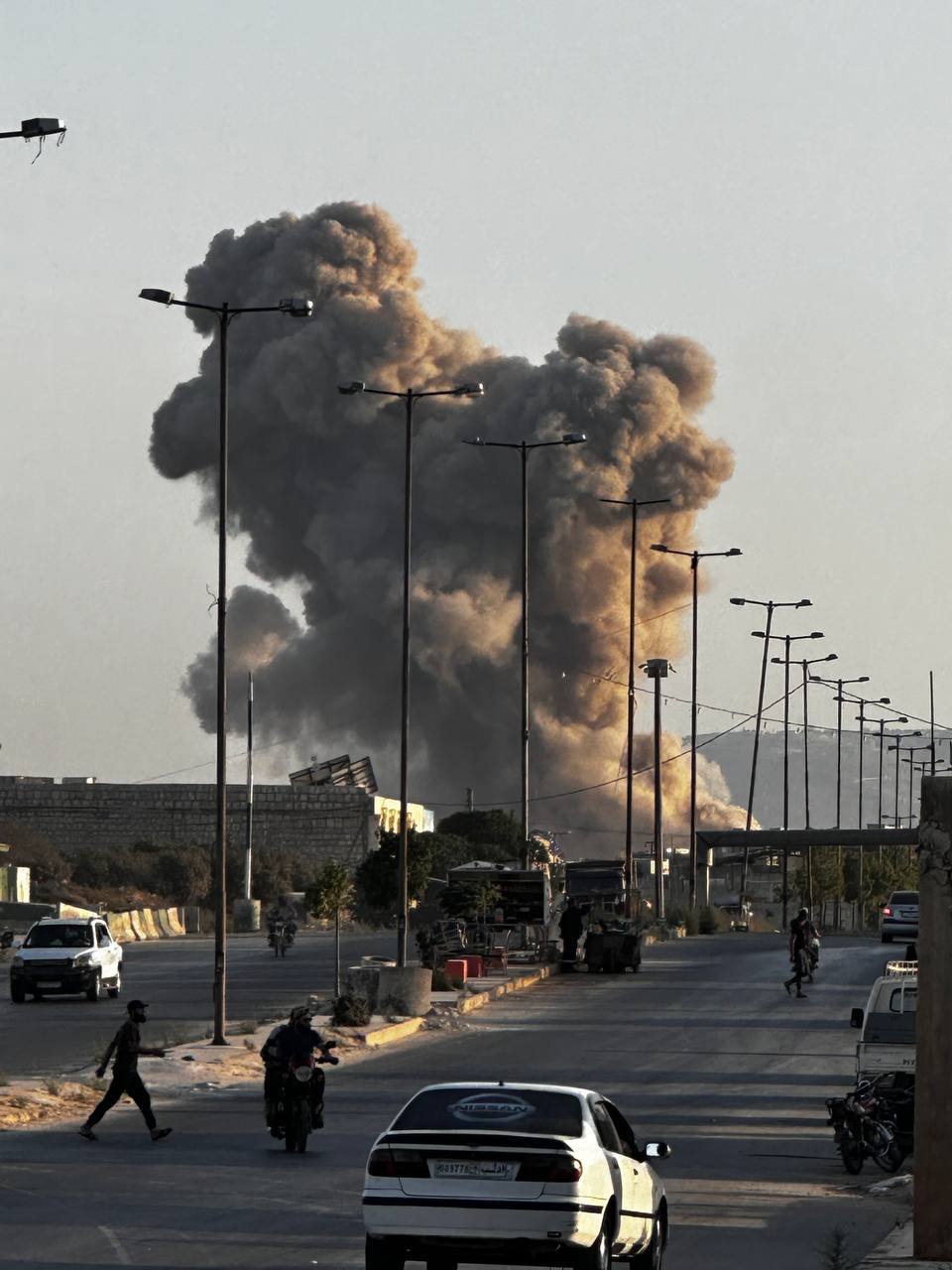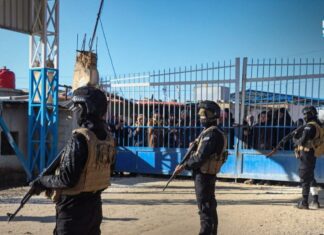
The Syrian Salvation Government (SSG) issued an urgent call for action yesterday, October 15, in response to an intensifying wave of Russian airstrikes that have severely damaged vital infrastructure in northern Syria. The attacks have left thousands without access to basic services, with SSG officials warning of a worsening humanitarian disaster as the conflict continues to displace civilians and disrupt daily life.
The most recent airstrikes by Russian forces targeted the Al-Kilani power station, which supplies electricity to the Ain Al-Zarqa water station near the city of Darkoush, west of Idlib. This key facility is now out of service, cutting off water supplies to 17 villages in Jabal Al-Wastani and halting irrigation for thousands of hectares of farmland in the Al-Roj Plain.
The SSG’s Deputy Minister of Agriculture and Irrigation, Engineer Ahmad al-Kawan, explained that the destruction of the Ain Al-Zarqa station directly impacts tens of thousands of residents who depend on agriculture for survival.
“The Russian occupation continues to adopt a policy of bombing essential public facilities, with the latest attack disrupting irrigation to more than 40 towns and damaging the water supply system for thousands of families,” al-Kawan said. “This assault not only threatens food production but also deepens the crisis for civilians already suffering from years of war.”
In addition to the Russian strikes, Iranian militias have ramped up attacks across the region. The SSG’s Political Affairs Department reported that Assad-allied Iranian forces killed eight civilians, wounded 38 others, and displaced over 10,000 families from their homes in recent days. The department stressed that these indiscriminate assaults are destabilizing the region and worsening the humanitarian situation.
In yesterday’s address, the SSG called on the Fath al-Mubeen Operations Room (FOMR) – a military coalition tasked with defending the liberated areas – to take decisive measures to protect civilians from the escalating violence.
“These indiscriminate attacks threaten regional stability and exacerbate the humanitarian crisis,” the statement read. “We call on the Fath al-Mubeen Operations Room to take immediate and decisive action to hold the perpetrators accountable and protect civilians and their property.”
The SSG emphasized its commitment to defending civilians and ensuring their right to live in safety and dignity. The government vowed to work with all available resources to address the damage and restore critical infrastructure in affected areas.
The SSG’s Minister of Information, Muhammad al-Umar, condemned the ongoing attacks on civilian infrastructure, noting that Russian airstrikes had been particularly intense over the past two days. He cited the bombing of the Al-Kilani power station, which supplies electricity to the Ain Al-Zarqa water station, as a key example of how essential facilities are being deliberately targeted.
“Thousands of hectares of agricultural land in the Al-Roj Plain rely on water from Ain Al-Zarqa. Now, those irrigation systems are completely offline,” al-Umar said, “which directly affects civilians’ livelihoods, exacerbates their suffering, and increases displacement.”
Al-Umar called on international media to document these violations and expose the war crimes being committed by the Assad regime, Russian forces, and Iranian militias. He also appealed to human rights organizations to intervene and stop the attacks that are plunging the region deeper into a humanitarian crisis.
The General Manager of the Ain Al-Zarqa water station, Osamah Abu Zaid, warned that the damage caused by the airstrikes threatens to create a humanitarian disaster in northern Syria. He noted that over 17 villages in Jabal Al-Wastani are now without access to clean water, and the station’s outage could lead to widespread crop failures in the Al-Roj Plain, one of the region’s primary agricultural areas.
“Without immediate repairs, farmers in the region could lose their crops, which would severely impact food security for the local population,” Abu Zaid said. “We are working with local authorities to restore the station, but the damage is extensive, and it will take time.”
The SSG stressed that the ongoing assaults are blocking recovery efforts and deepening the crisis in the liberated areas of northern Syria. “The Assad regime and its allies are conducting a deliberate campaign to destroy vital infrastructure and force the displacement of civilians,” al-Umar said. “The international community must act before the situation deteriorates further.” With airstrikes ongoing, fears are growing that the conflict will continue to spiral, plunging the region deeper into a prolonged humanitarian catastrophe.








